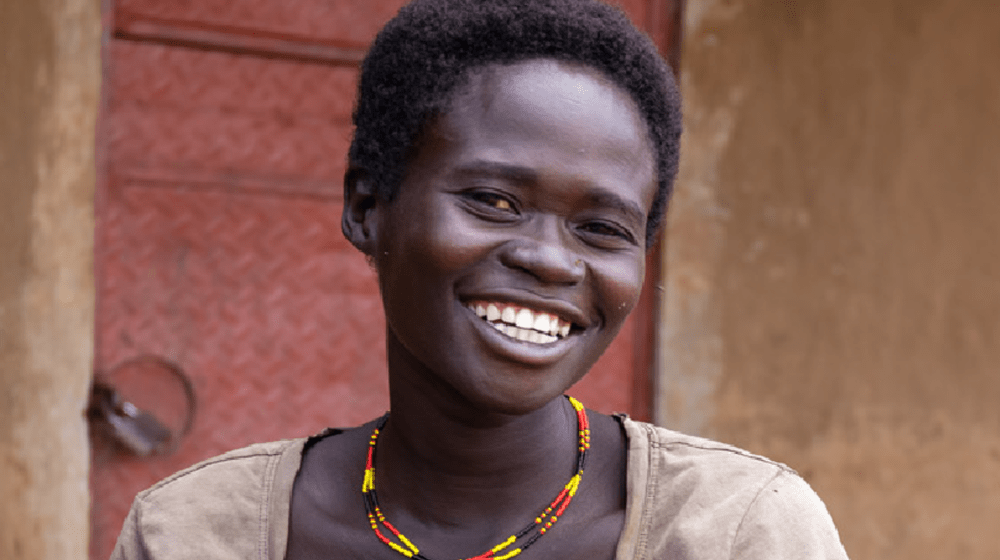In Napak district, like many of the rural areas in Uganda, women are generally relegated to the kitchen with little support in raising and fending for their children. Equal partnership in a marriage is not yet part of the community’s social fabric. Men can drink heavily, come back home to ask for food and never lift a finger to help.
For the 24-year-old Kokoi Gabriella from Lotome Sub- County-Napak, enduring violent alcoholism was part of her burden to bear as a woman. She generally did not feel supported by her husband and longed for more support at home.
Gabriella’s life changed when her husband started participation in Engaging Men in Accountable Practice (EMAP) sessions, an engagement strategy that provides a platform for men to address the root causes of Violence Against Women and Girls (VAWG) to create communities where women and girls are valued, equal and free from violence.
“Ever since my husband enrolled in EMAP training sessions, there is peace at home. When I am not at home, my husband cooks food for our children and bathes them. Before EMAP training, I would fetch water, cook and attend to the children while my husband is busy drinking alcohol with his friends,” Gabriella narrates.
Violence against women and girls takes many forms. Non-physical violence, especially neglect, and mental abuse is often unrecognised by both the victim and the community.
While men commit these forms of violence, they are not born violent towards women and girls and not all men commit violence. Many men, in fact, are deeply concerned about the violence that fellow men commit and believe that women and girls deserve respect, opportunities and equality. Men have important roles to play in helping to create peaceful and safe communities.
The EMAP is one of the interventions under the Joint Programme on Prevention and Response to Gender-Based Violence, which the International Rescue Commission implements with funding from the government of Sweden through the United Nations Population Fund (UNFPA).
IRC is sensitizing both women and men in Karamoja Sub-region through the EMAP programme to address social and gender norms that cause gender-based violence in the communities. In these engagements men are trained on gender-based violence (GBV) and sexual and reproductive health (SRH). The programme facilitates men to confront gender biases and negative norms and inspires them to take individual and collective efforts to protect women and girls against GBV.
Gabriella Kokoi is one of the many women whose life is better because of the programme. Now, Gabriella is enthusiastic about her future and feels supported to pursue her dream. She implores women in her community to embrace the interventions of EMAP, which teaches about violence against women and girls.
To date, the programme has worked with over 10,500 men who are championing women’s rights and protection in the community. With such programmes, the joint program is making progress towards ending GBV in the region. The journey is far from over and more support is needed to sustain the gains that the programme has made.


